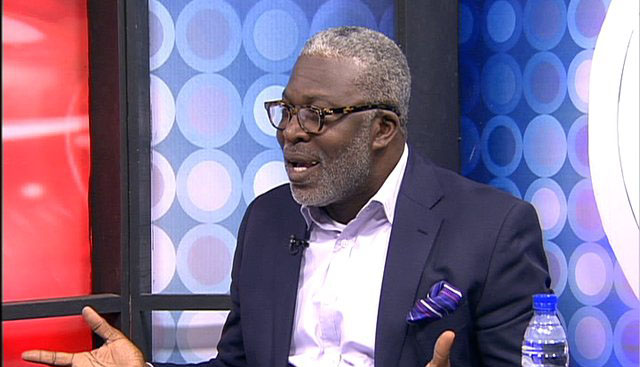
GSA challenged to expose companies producing, importing fake products
The Chief Executive Officer (CEO) of the Consumer Protection Agency (CPA), Mr Kofi Kapito, has called on the Ghana Standards Authority (GSA) to publish the list of all companies that are producing or importing fake products into the country.
At a press conference on September 4, 2018, the GSA said a market surveillance conducted by the GSA had revealed that 96 per cent of electrical products sold at the Opera Square and Zongo lane, in Accra were counterfeit and failed to meet standards.
The surveillance also revealed that more than 94 per cent of footwear sampled failed to conform to standards.
Failed attempts
Addressing a news conference in Accra yesterday, Mr Kapito said efforts made by the CPA,
"I spoke to Prof. Dodoo about the issue and asked that those companies have to be named so that the public will know where to buy from and he said he is still contacting his lawyers.
But, we need to know the companies and the category of products involved so that the safety of consumers can be guaranteed. The GSA cannot hold on to crucial information like this," he stressed.
Investigative reports
Mr Kapito also asked state agencies and regulatory bodies to make the reports of investigative committees that were commissioned on specific disasters in the country public as a matter of urgency.
For instance, he asked for the investigative reports on the gas explosions at the Atomic Junction and Kwabenya, in the Greater Accra Region as well as Asokwa in the Ashanti Region to be published as required by law.
In addition, he said it was unacceptable and a disservice to the public that three years after the fire and flood disaster at the GOIL fuel station at the Kwame Nkrumah Interchange that claimed more than 150 lives in 2015, the report had not been made the public.
BOST
Mr Kapito further asked the National Petroleum Authority (NPA) to, as a matter of urgency, publish the outcome of the investigation that was conducted into the contaminated fuel saga at the Bulk Oil Storage and Transportation Company (BOST).
“I was part of the committee that investigated the BOST contaminated fuel scandal and I know how much was spent by the committee to produce this report. We constitute boards, go to hotels, allowances are paid to committee members and after
"The 1992 constitution requires that reports of such investigative committees must be made public after six months unless the issues have national security implications, but many of such reports have not been in the public domain and this is unacceptable.
Regulatory bodies urged
He also called on the National Petroleum Authority (NPA), the Public Utility Regulatory Commission (PURC), Food and Drug Authority (FDA), GSA, and other agencies to make reports on investigations conducted public.
Mr Kapito observed that when such reports, especially those on gas explosions, were made public, the public would be aware of the safety precautions and best practices that
"Regulatory bodies think that the reports are their properties, meanwhile,
The CPA will do everything possible to ensure that people and companies who are killing Ghanaians consumers by flouting the laws are brought to book,” he stressed.
GSA’s Response
Responding to the demands of the CPA, the GSA said it did not intend to shield any company that was importing fake products but would rather crack the whip on such entities.
Speaking to the Daily Graphic in an interview, the CEO of the authority, Professor Alex Dodoo, said it was doing due diligence in compliance with the law before it came out to name and shame companies that were
“We have a list of companies who are importing fake products and we are ready to name and shame them because we have a mandate to ensure safety standards for the public. However, we want to ensure that we are acting in accordance with the law.
We are seeking legal advice and if we get the go ahead, to name and shame the culprits,” he stressed.
He observed that no stone would be left unturned to ensure
